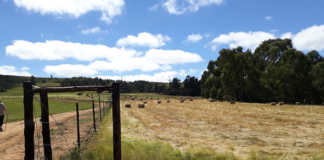
Photo: FW Archive
The disease resulted in high mortalities in rabbits and hares, with animals dying suddenly due to bleeding in organs such as the liver, kidney and spleen, according to a statement by the agriculture department.
This was the first time that RHD had been detected in South Africa, and the department was investigating the source of the outbreaks, as the importing of hares and rabbits into the country was prohibited.
READ Farming Angora rabbits with love and care
Local authorities began to suspect a problem after rabbits and wild hares began dying in unusually high numbers in parts of the Northern Cape towards the end of October, and in some areas of the Western Cape in the first week of November.
Petro van Rhyn, general manager for advocacy at CapeNature, told Farmer’s Weekly that 296 ill and/or dead hares had so far been recorded in 58 locations, mainly in the Karoo, the southern part of the Northern Cape, and the north-west quadrant of the Western Cape.
Reports of the deaths of domestic rabbits had, however, come from as far west and south as Hermanus and Durbanville, she added.
Affected species included the domestic rabbit (Oryctolagus cuniculus domesticus), the Cape hare (Lepus capensis spp), the scrub hare (Lepus saxatilis), and Smith’s red rock hare (Pronolagus rupestris).
READ Practical tips for starting a rabbit farm
Conservationists feared that RHD could also affect the endangered riverine rabbit (Bunolagus monticularis), which occurred only in the Nama-Karoo shrubland.
Van Rhyn added that the outbreaks of RHD were a devastating blow, as hares and rabbits were important seed dispersers and formed a crucial part of the diet of carnivores and raptors. Some species were also regarded as “ecosystem engineers”, as they modified the environment by burrowing and digging.
In the absence of a vaccine to control the disease, Daniel Johnson, spokesperson for the Western Cape Department of Agriculture, advised rabbit owners to practise strict biosecurity measures.
“Don’t introduce new rabbits, touch other rabbits, or allow visits from rabbit owners or their workers until more information is available on the disease.
“Avoid contact with wild rabbits and hares, and clean equipment with a bleach solution, then leave it to dry for at least 10 minutes before rinsing it off,” he said.
Johnson also advised owners to wear gloves soaked in bleach when handing carcasses, and to bury the carcasses at least 1,5m deep and at least 100m away from vleis, dams and waterways.
Report unusual deaths of domestic rabbits to your local state veterinarian, and those of wild rabbits to CapeNature or the Endangered Wildlife Trust.










